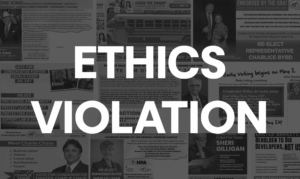New legislation has been proposed to create a regional “Transit Governance Council” to handle bus and rail projects in metro Atlanta in conjunction with the Georgia Regional Transportation Authority.
The Transit Governance Council would include local elected officials from each of 13 metro Atlanta counties including Fayette, Coweta, Clayton, Fulton, Cobb, Gwinnett and seven others. Under the legislation, each county would be represented on the TGC by its county commission chairman and a mayor elected by a caucus of the county’s mayors.
The region’s transit aspirations will be front and center this July, as a vote is slated for a proposed 10-year one percent regional sales tax. If approved by voters in the 10-county metro region, more than $3 billion of the tax would be used for rail and bus improvements in metro Atlanta.
The sales tax, which also contains more than $3 billion for road projects, has been criticized for providing too much funding for mass transit. One of those critics, Peachtree City resident Bob Ross, has noted that only 5 percent of metro residents use some type of transit service.
The regional transportation sales tax process also has been assailed because of the possibility that individual counties could vote down the measure but still have to implement the tax because the vote is tallied on the aggregate vote of all 10 metro Atlanta counties.
According to the proposed legislation, the council would also include the mayor of Atlanta and five other members: three appointed by the governor and one each from the lieutenant governor and the speaker of the House of Representatives.
The governor also would have the power to nominate two additional county commissioners, who must be approved by a majority of the county commission chairpersons on the council, and also one municipal elected official who must be approved by a majority of the mayors on the council.
Under the draft legislation, the council would be charged with a number of transit-related tasks, including the adoption of a regional transit plan and the ability to accept federal funds for transit projects. The council would also be charged with developing a fare system for transit operators other than the Metropolitan Atlanta Rapid Transit Authority (MARTA).
Although the proposed legislation does not spell out any regional taxation powers, it would allow local governments including counties or cities to levy a tax, fee or assessment to pay for transit projects.
The proposed legislation would enable GRTA and the Transit Governance Council to plan and expend local, state and federal funding for transit projects. Part of the push for a regional transit agency is a hope to unite the various transit offerings from several different entities with a desire to have one unified fare system that would work across all transit types.
By linking all of metro Atlanta’s transit options under one agency, there is also a hope that the area will qualify for more federal funding than if the various existing transit agencies had to apply for funding on their own.
The proposed legislation also would change how GRTA’s board of directors are chosen as of July 1, 2012, with the governor appointing nine of the 15 members, and three each appointed by the lieutenant governor and the speaker of the House of Representatives.











Leave a Comment
You must be logged in to post a comment.